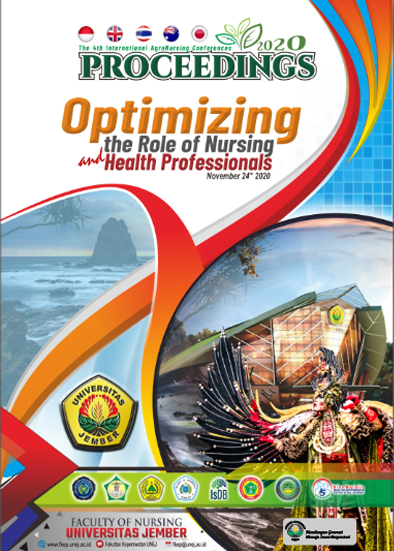FACTORS ASSOCIATED WITH INTENTION OF NURSING STUDENT TO PERFORM BASIC LIFE SUPPORT BASED ON THEORY OF PLANNED BEHAVIOR
Abstract
Backround: Quality of CPR performed by nursing students met in lower of standart that was American Heart Association established. Factors that associated with basic life support performed by nursing students could be predicted using theory of planned behavior. Purpose: The major aim of the study was to analyse the correlation between attitude with intention, to analyse the correlation between subjective norm with intention, and to analyse the correlation between perceived behavioral control with intention. Methods: The Study design was analytic study with cross sectional approach. The participants were 100 undergraduate nursing students at two school of nursing in Banyuwangi, Indonesia. participants were recruited from march one to march 30, 2020 by self administered questionnare. The data collected was tabulated in MS Excel sheet and analyzed using SPSS version 16 software programme. Result: Majority of participants had good intention, positive attitude, good subjective norm and good perceived behavioral control. Attitude, subjective norm, and perceived behavioral control had correlation with intention of nursing students to perform basic life support. Conclusion: The factor that had strongly correlation with intention was attitude, followed by subjective norm and perceived behavioral control. By modifying positive attitude, good subjective norm and good perceived behavioral control could enhance intention of nursing students to perform basic life support.
Keywords: nursing students, basic life support, theory of planned behavior, intention


